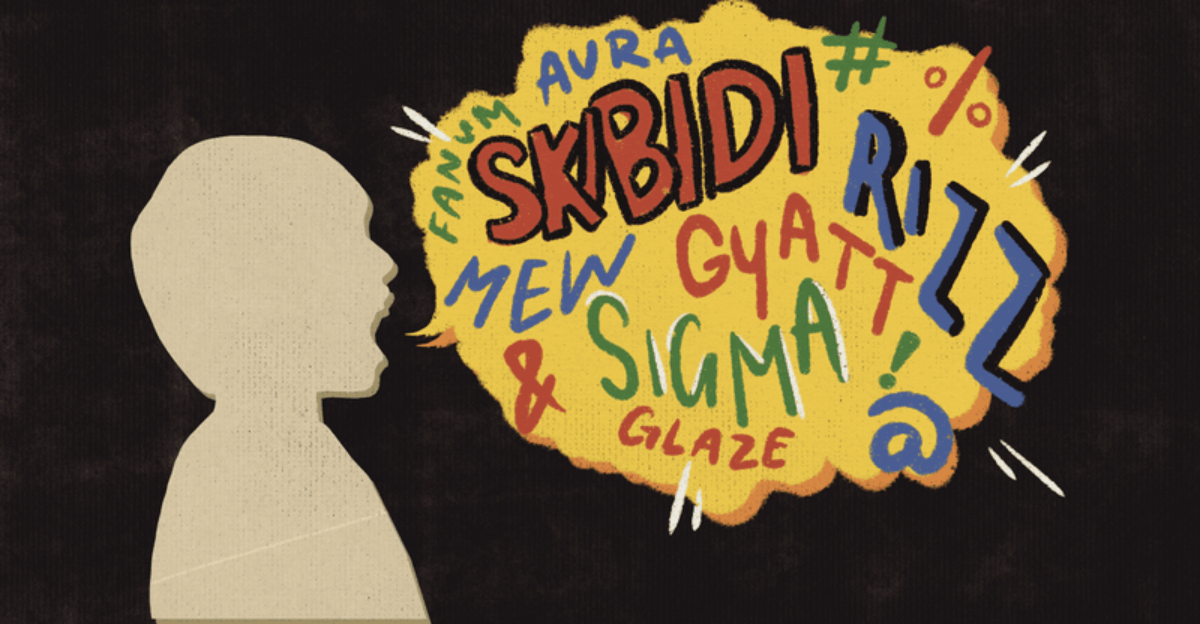18 Reasons Gen Alpha Keeps Repeating Random Slang on Loop
Because when a 9-year-old says “rizz,” “cap,” and “skibidi” in one sentence, you know there’s a deeper (and weirder) reason behind it.
If you’ve been around Gen Alpha—those born roughly between 2010 and 2025—you’ve probably noticed how they’ll latch onto a word and repeat it until you wish your ears had an off switch.
Listen, it’s not just kids being kids. There’s a cocktail of psychology, culture, and sneaky digital design behind their love of looping the same slang on repeat.
As much as it might set your eye twitching, understanding why these phrases stick says a lot about how Gen Alpha sees themselves—and how they’re navigating this wild, always-on world.
Get ready for a peek into their offbeat logic and the secret sauce that keeps their favorite words bouncing around every group chat and classroom. Here are 18 reasons Gen Alpha is stuck on repeat—with slang that’s as bizarre as it is brilliant.
1. They’re raised on algorithm-fed content
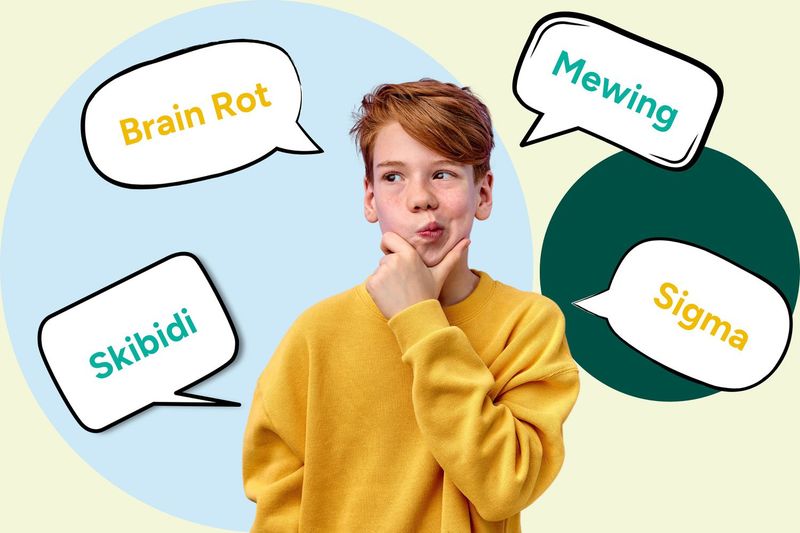
Have you ever watched a kid scroll TikTok for five minutes? It’s like witnessing a brain download a hundred quirky phrases in hyperspeed. The catchiest slang isn’t just catchy by accident—those algorithms are relentless.
Gen Alpha is soaking up words like “rizz” and “cap” because their feeds are engineered to serve them bite-size trends on repeat. Every tap, share, or like teaches the algorithm to push more of whatever stuck. Honestly, it’s no wonder they echo the same phrases like a pop song chorus.
It’s a feedback loop: the more they repeat, the more content matches what they expect. If your kid suddenly can’t stop saying “skibidi,” blame the For You Page. That’s the real ringleader behind their nonstop slang parade.
2. Short, weird phrases get attention
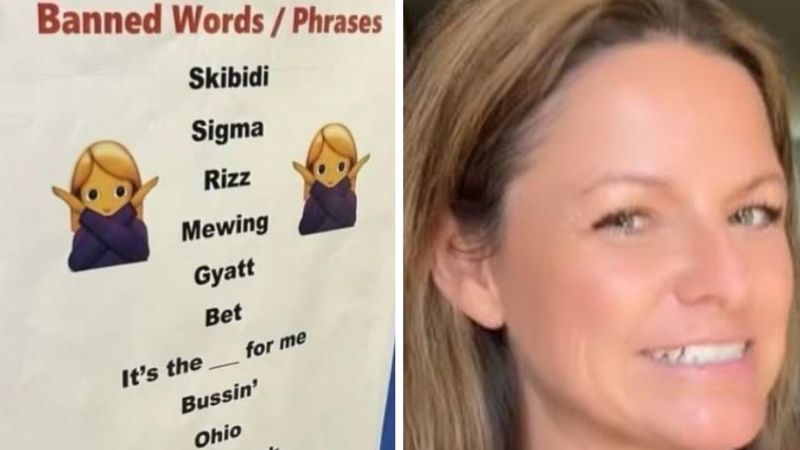
“Skibidi” isn’t just a word—it’s a conversation grenade. Sometimes, the weirder the slang, the better the reaction. Kids know a random phrase will get heads turning, and honestly, getting noticed is half the fun.
It’s not about being understood; it’s about being unforgettable. When they see their friends laugh, roll their eyes, or demand an explanation, that instant feedback boosts the appeal. The stranger the word, the more it pops.
Most adults end up bewildered, but for Gen Alpha, that’s all part of the game. They use outlandish slang for pure shock value, and it absolutely works—no explanation necessary.
3. It creates instant in-group belonging
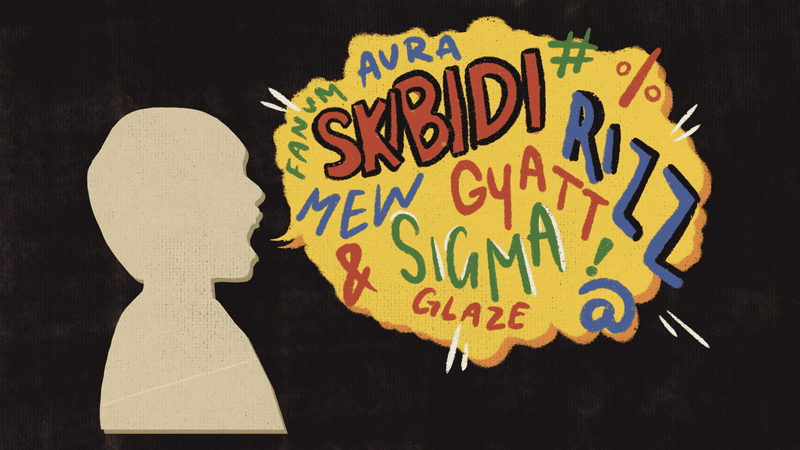
There’s nothing more satisfying than feeling like you belong. For Gen Alpha, repeating the “right” slang is like a secret password into the coolest club on campus—or at least the lunch table.
Dropping words like “gyatt” or “sigma” shows you’re tuned into the same channels as your friends. It’s their version of a secret handshake. If you’re in, you know; if you’re not, you’ll feel it fast.
This isn’t just about language—it’s about community. Every time they repeat those words, they’re reaffirming, “I’m one of you.” It’s social glue, modern-day edition.
4. Repeating slang is a power move in kid world

Some kids just have to be the cool one, you know? Repeating the hottest slang isn’t just about fitting in—it’s a low-key power move. The one who knows the latest word basically runs the show at recess.
It’s like being the walking update log for what’s trending this week. The right phrase can turn a regular kid into the go-to source for what’s cool. Suddenly, everyone wants them on their team.
Forget sneakers or the shiniest backpack—knowing and repeating slang is social currency. It’s how Gen Alpha flexes their trend muscles and stays in the loop without missing a beat.
5. They’re mimicking their favorite creators

Kids aren’t just copying their friends—they’re channeling their favorite creators. You know those streamers with the wild catchphrases? Gen Alpha picks up every word and flings it around like confetti.
The line between watching and living gets real blurry. If their YouTube hero says something, you’ll hear it on repeat in the kitchen and down the hallway. I swear, it’s like the internet has moved in.
Those phrases become a badge of honor—a little piece of their digital idol they can wear out loud. It’s “monkey see, monkey do,” but with a Wi-Fi connection and a whole lot more energy.
6. It gives them a sense of control

Sometimes, life as a kid feels like everything’s out of your hands. But repeating a word you actually get to choose? That’s power. It’s a tiny act of rebellion and agency rolled into one.
Having a go-to phrase gives them something steady when everything else is changing—school, friends, even their own moods. Language becomes a comfort zone, a place they control.
Repeating “rizz” six times in a row might sound nuts to us, but to them, it’s a little victory. Maybe it’s silly, but in a world full of surprises, who wouldn’t want to feel like the boss, even for a second?
7. Slang is the new playground chant

Remember yelling “no backsies!” or “made you look!” at recess? This is just that, but turbocharged by the internet. Gen Alpha has swapped old chants for viral words that travel straight from screen to swing set.
The new chants are shorter, punchier, and way more random. There’s something timeless about repeating a phrase until everyone’s giggling—only now, it’s got a digital twist.
Don’t be fooled: playgrounds haven’t changed that much. Kids still crave silliness and group rituals; they’ve just leveled up the language game.
8. Repetition is how young brains solidify social language
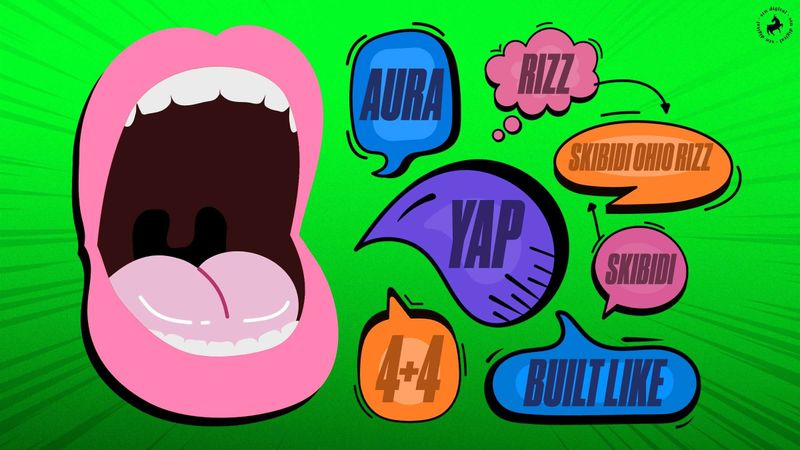
Why do little kids repeat everything? Because it’s how their brains lock in new social tricks. Repetition isn’t just fun—it’s science. Their minds are busy wiring up patterns for rhythm, humor, and timing.
Saying “skibidi” a zillion times helps them learn what makes people laugh or roll their eyes. Each loop is practice for the big leagues of conversation, even if it sounds like nonsense to adults.
Turns out, looping slang is brain bootcamp for Gen Alpha. It might make you crazy, but it’s how they’re getting socially stronger—with every hilarious echo.
9. They live in a remix culture

Gen Alpha doesn’t just repeat—they remix everything. Why settle for one meme when you can mash up four and toss in your own twist? It’s like their creative superpower.
They’ll take a viral slang word and flip it, exaggerate it, or blend it with something totally random. Originality isn’t about inventing from scratch—it’s about remixing what’s already floating around.
Being part of a remix culture means their slang evolves at lightning speed. Every new phrase is a group project, with everyone adding a weird flavor. It’s messy, chaotic, and totally fun.
10. It annoys adults (and that’s funny)

If saying “slay” twenty times in a row gets you to groan, that’s a win for Gen Alpha. There’s a secret superpower in knowing exactly how to drive grown-ups up a wall (with love, obviously).
Sometimes, the fastest way to become a household legend is to adopt a phrase that absolutely baffles adults. The louder or more frequent, the better.
Honestly, annoying your parents is a time-honored tradition. Gen Alpha’s just found a louder, loopier way to do it—with slang that’s engineered to stick.
11. The words are nonsense — and that’s freeing

Who says every word has to make sense? For Gen Alpha, the freedom to say something totally ridiculous is half the fun. “Goofy ahh” or “skibidi rizzler” doesn’t need logic—it just needs a laugh.
Words become playgrounds themselves. Nonsense breaks up boring routines and lets kids be creative with zero rules. It’s a break from homework, chores, and grown-up expectations.
Some of the most beloved phrases have zero meaning but endless replay value. Why? Because nonsense is an open invitation to play, and Gen Alpha will RSVP every time.
12. It’s easier to repeat than explain
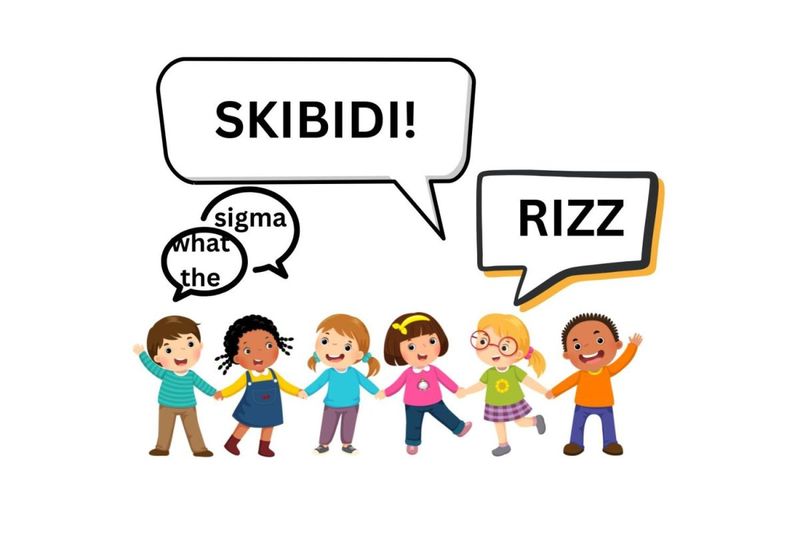
Let’s be honest—explaining stuff is exhausting when you can just drop a slang bomb. Why use a whole sentence when “no cap” gets the job done? Gen Alpha loves a shortcut, especially if it means less effort.
Efficiency is everything in their world. Between texts, group chats, and comments, fast language wins. If a word saves them a few taps, it’s gold.
No one’s being lazy on purpose; they’re just optimizing for their super-busy, always-online lives. Shortcut slang is their way of keeping up without wearing themselves out.
13. Language becomes identity — fast

Slang isn’t just something Gen Alpha says—it’s who they are. Every repeat and remix is another brushstroke on their self-portrait. The words they choose shape how they see themselves and want the world to see them.
Language is identity, especially during those wild years of growing up. Repeating the “right” slang helps them feel seen and understood by their people.
It’s not just about fitting in; it’s about declaring, “This is me.” That’s a powerful feeling, wrapped up in a handful of syllables.
14. It helps them feel older or funnier than they are
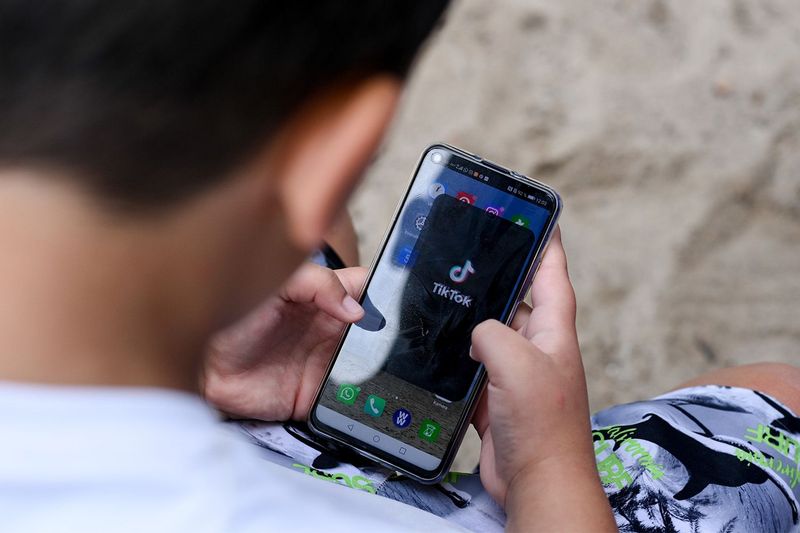
There’s something magical about sounding older—or at least like you’re in on the joke. Gen Alpha loves picking up slang from older siblings or viral creators, trying it on like a new outfit.
Repeating grown-up words is the fastest way to a temporary upgrade. It’s like borrowing confidence for a day. The more they repeat it, the closer they feel to the “big kids” club.
We’ve all been there—wanting to seem just a little bit cooler or funnier than we really are. For Gen Alpha, slang is the ticket to that feeling, every single time.
15. It fills awkward silences

No one likes an awkward pause, especially not kids. Repeating a silly word is the perfect way to break the tension and reset the mood. If shouting “gyatt” sparks laughter, why not run with it?
Gen Alpha has a sixth sense for when things start to drag. They fill the silence with something goofy, inviting everyone back into the conversation—even if it’s just nonsense.
It’s a simple trick, but it works. Slang becomes their emergency button for ending awkwardness fast.
16. Sound repetition = dopamine

Did you know saying fun words out loud can actually spark tiny brain fireworks? Gen Alpha gets a mini dopamine hit every time a catchy phrase lands just right. Laughter from friends is the bonus round.
It’s not just about being silly—brain chemistry is backing them up. Repeating playful sounds is literally rewarding for their minds, which explains why they can’t stop.
The next time they’re looping “skibidi” for the hundredth time, remember: it’s not just habit. It’s a little brain party, and everyone’s invited.
17. They don’t always understand it — but they know it matters

Sometimes, it’s not about understanding—it’s about not being left out. Gen Alpha will repeat a phrase even if the meaning is fuzzy, just to feel included.
The urge to be “in the loop” is stronger than the need for logic. If everyone else is saying it, jumping on the bandwagon feels like the safest move.
Even if it’s pure nonsense, the sense of belonging is worth more than any definition. Staying in the loop beats making sense every time.
18. It’s their version of language play — and it works
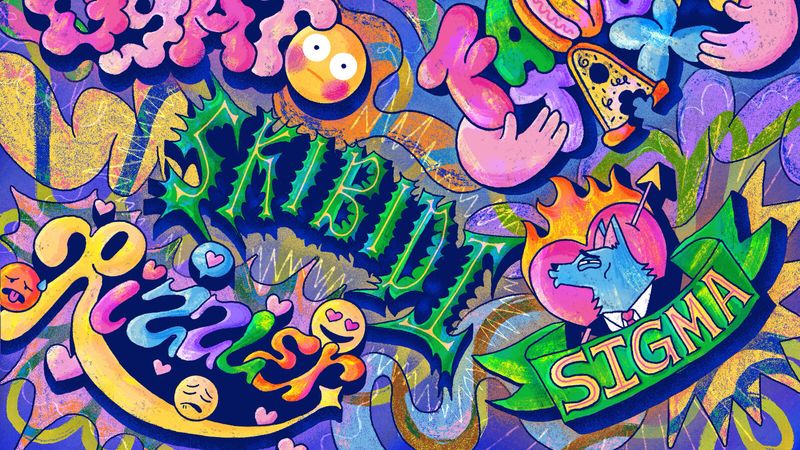
Kids have always played with words—now it’s just got a tech upgrade. Gen Alpha has swapped “Miss Mary Mack” for TikTok slang, but at its heart, it’s the same old language game.
Repetition is their way of pushing boundaries and seeing what sticks. Inventing new meanings? That’s their specialty. What looks like chaos is actually creativity on display.
Every generation has its version of wordplay. Gen Alpha’s just happens to be faster, weirder, and at full volume. And honestly? It works.

